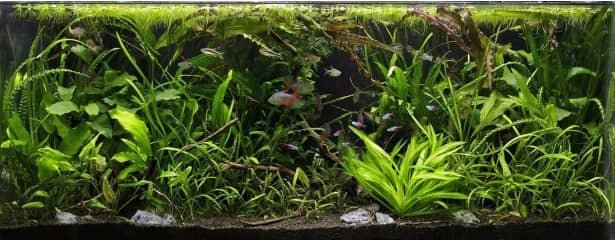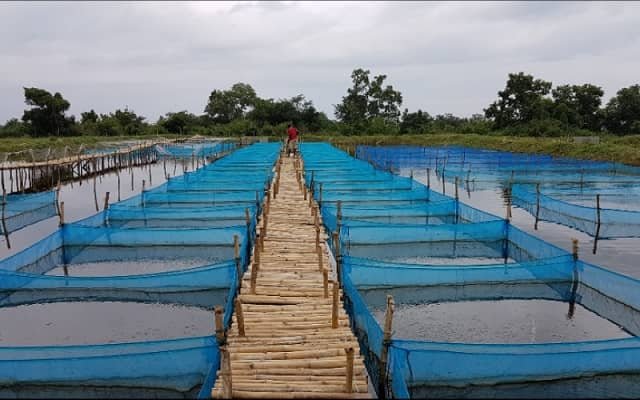USA – The Maine Aquaculture Hub is pleased to announce $216,000 of funding to support five projects seeking to strengthen the aquaculture industry in Maine. Aquaculture, the practice of farming aquatic plants and animals, is an $88.4 million dollar industry in Maine and benefits coastal communities by providing jobs, food security, and economic opportunity.
Recipients of the Maine Aquaculture Hub awards include industry members, sea farmers themselves, and companies that provide goods and services to sea farmers. Awardees will be using funds to address identified barriers to the industry.
Maintaining clean equipment, for example, is an imperative yet labor-intensive job for successful shellfish aquaculture operations. Buildup of unwanted marine organisms, called biofouling, on the equipment or the shellfish can hinder growth, restrict the flow of water, lead to shellfish death, and result in lost revenue. Two funded projects, one from Butterfield Shellfish Company and the other from the Maine Aquaculture Co-op, will be testing new technology to automate the cleaning process.
Keith Butterfield of Butterfield Shellfish Company, an oyster farm in Casco Bay, will be testing a device that mechanically flips oyster bags. Valued at $9.6 million in 2019, farm-raised oysters represent a large part of Maine’s aquaculture industry.
“I’m deeply appreciative for this generous award,” said Butterfield, a founder and partner of the company. “I know that this new mechanization technology will be transformative for my farm and I’m excited to prove it and then share the value with other Maine farmers.”
Caitlin Cleaver, a Maine Aquaculture Coop board member and University of Maine PhD candidate, will test a sea scallop lantern net washer and determine the feasibility of sharing the machine between farmers. Sea scallops are a promising species for Maine aquaculture and can yield a high value product; however, infrastructure for producing them in the state is currently limited.
Nate Perry, owner of Pine Point Oyster Company, will develop a less expensive biotoxin testing method for roe-on scallops. Most farmers sell scallop meat only, but roe-on scallops are sold in their shell and fetch a higher price. The cost of testing can prevent farmers from expanding their production.
Peter Rahn, Atlantic Sea Farms’ production manager and food safety specialist, will add a kelp blancher to increase the company’s capacity for processing kelp. This expansion will allow Atlantic Sea Farms to buy more raw material from kelp farmers across the state.
Stay Always Informed
Join our communities to instantly receive the most important news, reports, and analysis from the aquaculture industry.
“Atlantic Sea Farms is very appreciative of the expanded opportunity for innovation and growth that this grant provides,” said Rahn. “As we continue to build capacity and innovate kelp processing and grow the US market for rope-grown Maine kelp, we are better able to expand opportunities for lobstermen and help to sustainably diversify our coastal economy in the face of climate change. We see the award of this grant as more than an opportunity for Atlantic Sea Farms. It’s also an opportunity for Maine.”
Robert Wood of the Downeast Fisheries Partnership, will try to expand mussel operations and opportunities by testing cultured seed. Standard practice is for mussel farmers to use wild-recruited seed, which can be unreliable. This study will focus on blue mussels, including the “golden” mussel.
“We are very happy that those involved in selecting among the many proposals submitted believed, as we do, that this project has the potential to contribute to the aquaculture industry and to the long term sustainability of our communities,” said Wood.
“We are thrilled to be able to support our sea farmers in this way and look forward to the progress each of these projects will bring,” said Maine Aquaculture Hub Coordinator, Heather Sadusky. “Together, they address a variety of species and locations across the state, and hold promise for meeting the needs of the industry in Maine.”
The Maine Aquaculture Hub anticipates a second request for proposals in 2021.
Editor at the digital magazine AquaHoy. He holds a degree in Aquaculture Biology from the National University of Santa (UNS) and a Master’s degree in Science and Innovation Management from the Polytechnic University of Valencia, with postgraduate diplomas in Business Innovation and Innovation Management. He possesses extensive experience in the aquaculture and fisheries sector, having led the Fisheries Innovation Unit of the National Program for Innovation in Fisheries and Aquaculture (PNIPA). He has served as a senior consultant in technology watch, an innovation project formulator and advisor, and a lecturer at UNS. He is a member of the Peruvian College of Biologists and was recognized by the World Aquaculture Society (WAS) in 2016 for his contribution to aquaculture.




